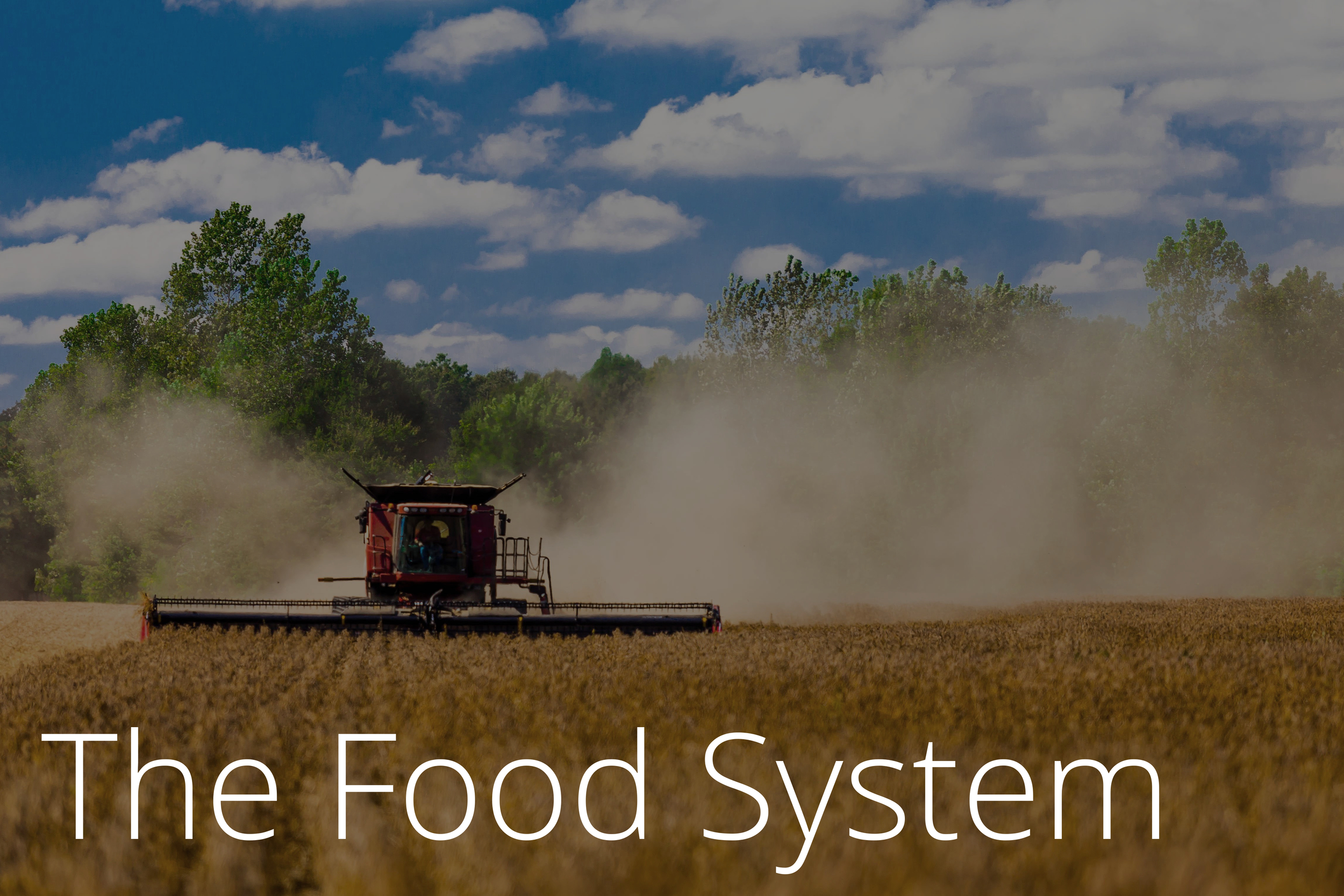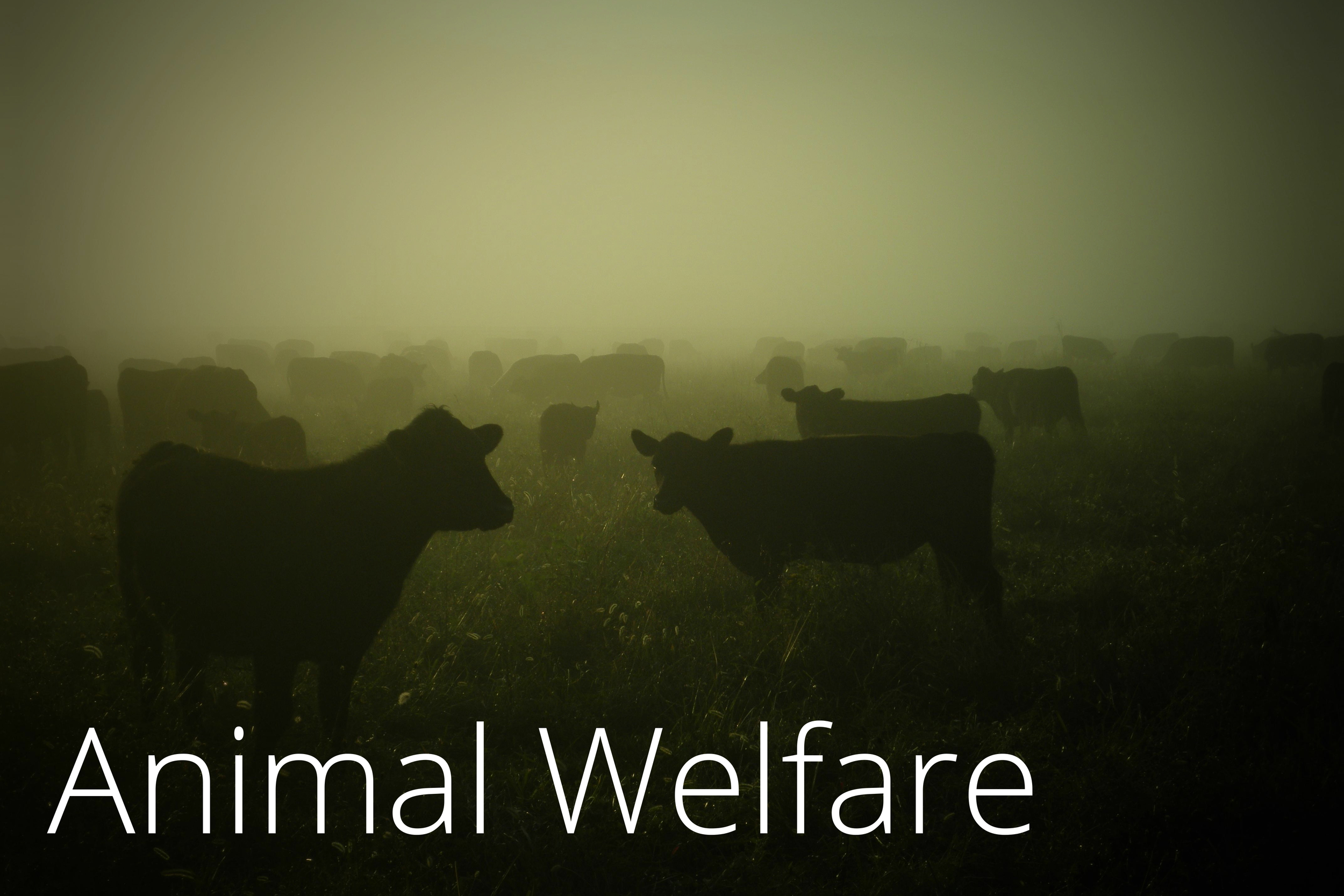We should consider the health impacts of animal product consumption from two sides: the personal and the public. Not only does lower meat consumption typically lead to better personal health, but as more choose to lower their animal product intake, public health (beneficial both in its own right and for the sake of healthcare costs) stands to improve as well.
1. The livestock industry contributes to the evolution of antibiotic-resistant diseases.
With modern farms placing more livestock in closer proximity than ever before, the risk of disease has necessitated preventative measures: most farms feed their livestock large quantities of antibiotics. But with bacteria constantly evolving, the overuse of such antibiotics in livestock leads to antibiotic resistant strains, known popularly in the media as "superbugs," placing humans at greater risk of disease and epidemics.[1][2][3][4]
2. Plant-based diets are generally healthier than diets that are high in meat and other animal products.
While there is certainly no claim that all vegetarian or vegan diets are healthier than all forms of omnivorous diet, it is quite clear that, in general and as a whole, lowering the animal product consumption of the average member of a high-income country would be beneficial to their personal health. By reducing their meat and dairy intake, the average resident of a high-income country, and the average American in particular, could reduce their risk of cardiovascular disease, stroke, and even cancer, thereby increasing health and longevity.[5][6][7][8][9][10][11][12][13][14][15] These observed effects are likely due to both the reduced intake of animal product, and to the compensatory increase in consumption of plant-products, such as fruits and vegetables.
[1] Anderson, A. D., Nelson, J. M., Rossiter, S., & Angulo, F. J. (2003). Public Health Consequences of Use of Antimicrobial Agents in Food Animals in the United States. Microbial Drug Resistance, 9(4), 373–379. doi:10.1089/107662903322762815
[2] Gilchrist, M. J., Greko, C., Wallinga, D. B., Beran, G. W., Riley, D. G., & Thorne, P. S. (2007). The Potential Role of Concentrated Animal Feeding Operations in Infectious Disease Epidemics and Antibiotic Resistance. Environmental Health Perspectives, 115(2), 313–316. doi:10.1289/ehp.8837
[3] McEwen, S. A., & Fedorka‐Cray, P. J. (2002). Antimicrobial Use and Resistance in Animals. Clinical Infectious Diseases, 34(s3), S93–S106. doi:10.1086/340246
[4] Silbergeld, E. K., Graham, J., & Price, L. B. (2008). Industrial Food Animal Production, Antimicrobial Resistance, and Human Health. Annual Review of Public Health, 29(1), 151–169. doi:10.1146/annurev.publhealth.29.020907.090904
[5] Craig, W. J. (2010). Nutrition Concerns and Health Effects of Vegetarian Diets. Nutrition in Clinical Practice, 25(6), 613–620. doi:10.1177/0884533610385707
[6] Fraser, G. E. (2009). Vegetarian diets: what do we know of their effects on common chronic diseases? The American Journal of Clinical Nutrition, 89(5), 1607S–1612S. doi:10.3945/ajcn.2009.26736K
[7] Hu, F. B. (2003). Plant-based foods and prevention of cardiovascular disease: an overview. The American Journal of Clinical Nutrition, 78(3), 544S–551S.
[8] Key, T. J., Davey, G. K., & Appleby, P. N. (1999). Health benefits of a vegetarian diet. Proceedings of the Nutrition Society, 58(02), 271–275. doi:10.1017/S0029665199000373
[9] McEvoy, C. T., Temple, N., & Woodside, J. V. (2012). Vegetarian diets, low-meat diets and health: a review. Public Health Nutrition, 15(12), 2287–2294. doi:10.1017/S1368980012000936
[10] Nestle, M. (1999). Animal v. plant foods in human diets and health: is the historical record unequivocal? The Proceedings of the Nutrition Society, 58(2), 211–218.
[11] Sabaté, J. (2003). The contribution of vegetarian diets to health and disease: a paradigm shift? The American Journal of Clinical Nutrition, 78(3), 502S–507S.
[12] Singh, P. N., Sabaté, J., & Fraser, G. E. (2003). Does low meat consumption increase life expectancy in humans? The American Journal of Clinical Nutrition, 78(3), 526S–532S.
[13] Sinha, R., Cross, A. J., Graubard, B. I., Leitzmann, M. F., & Schatzkin, A. (2009). Meat Intake and Mortality: A Prospective Study of Over Half a Million People. Archives of Internal Medicine, 169(6), 562.
[14] Snowdon, D. A. (1988). Animal product consumption and mortality because of all causes combined, coronary heart disease, stroke, diabetes, and cancer in Seventh-day Adventists. The American Journal of Clinical Nutrition, 48(3), 739–748.
[15] Walker, P., Rhubart-Berg, P., McKenzie, S., Kelling, K., & Lawrence, R. S. (2005). Public health implications of meat production and consumption. Public Health Nutrition, 8(04), 348–356. doi:10.1079/PHN2005727




